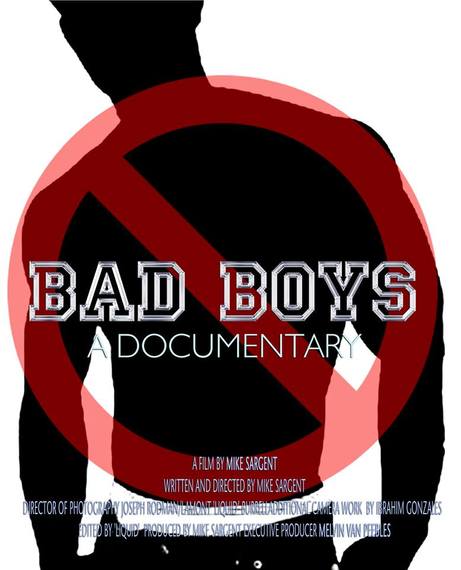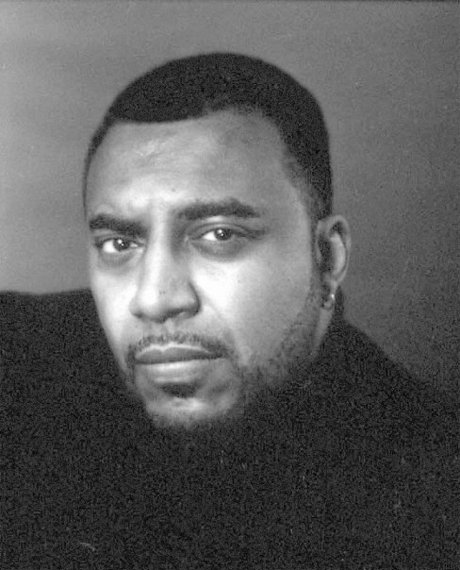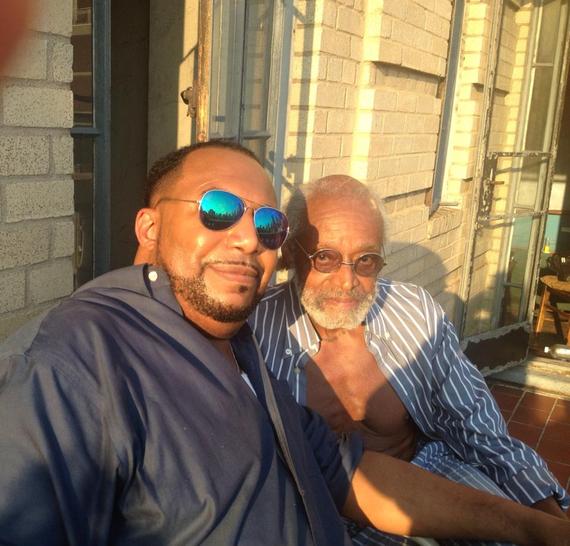There seems to be a considerable number of women walking the earth, who love men with dark elements to their personalities, but do they? After the attraction of perceived masculinity has worn off, what is often left other than a migraine and painful memories? What is sexy about a man with a constant desire for attention, admiration and prestige? Why choose the masterful manipulator that exploits, deceits and flatters, often with a lack of remorse, moral concerns and sensitivity, but spiced with a good portion of cynicism? "Because they are sexy," seems to be an almost universal answer among many women in different parts of the world. Columnist, philosopher, realist and man, Paul Hudson summarizes, "With time, all women come back from the dark side. They learn firsthand that bad guys are bad for them."
New York City filmmaker and TV host Mike Sargent wants to get to the bottom of a phenomenon that is able to show so much about the way men and women relate, cross-cultural, cross-continental, global. His documentary Bad Boys is in the making. Sargent identified twenty-six different types, from the hustler over the intellectual to the unapologetic bad boy with additional sub-types. Women finally have an extensive list to tailor their very own heart-breaker. He is optimistic that the subject will be appealing enough for people to support his current crowd-funding campaign. Why his project could draw global attention, he explains in an interview.
What inspired you to come up with the theme for the documentary?
My daughter inspired me. After pop star Rihanna got hit by her boy-friend Chris Brown she told me, "Rihanna probably started it." It really bothered me, considering my daughter is an intelligent young woman, I am a closet feminist and she should probably know better. But she was sharing this view with her peers. And it made me think of all the women I knew who were successful, spiritual, ambitious and had their lives together in many other ways, but would keep dating bad boys. Not to mention the women we see in the media, such as Britney Spears, Whitney Houston, or going back in time, Elizabeth Taylor. Then I did my late night radio show and raised the topic. The phones lit up and I knew I had my theme for a documentary.
Describe the various types of "bad boys" you identified while doing your research. What historical references did you find?
What I did find is that most bad boys are a combination of several sub-types. And whatever bad boy is your particular preference is on that list of twenty-six types, I collected throughout my research. In regards to historical references, I went back in time and looked up Louis XIV. , Casanova, Marquis de Sade and a number of other prominent figures that fall into the bad boy categories. It is fascinating to see how the public perceived some of these men and how they were almost portrayed as heroes back then. It appears that every generation basically redefined the bad boy. And if you look around the world in terms of film, there's always culturally some bad boy of the time or of type. Whether it's the greaser in the 50s, or the 90s tattooed bad boy, there's always some character that fits the profile and bad boy icons, like a James Bond that are prevalent in our cultures.
In what way do the women vary you interviewed?
I have tried to interview as many different women as possible. They vary in age, culture, national background, profession. I started with women in their late teens and early 20's up to women in their 70's, Black, White, Chinese, Russian, German, Italian, married or single.
What was one of the most repeated feature women like about bad boys?
There are probably four different categories of women I interviewed in relation to bad boys. The first type is the woman that dates them and seems to not being able to resist, despite making negative experiences. The second type is a woman who used to date bad boys, but learned from her encounter. The third type is the one that views bad boys as a fun pastime or adventure. The fourth kind may or may not find them attractive, but would not date them out of principle. One striking observation I made is that most of the women at some point in their lives have turned down good men, or so called nice guys, that they knew would probably make good boy-friends or husbands, in order to be with a bad boy. The most repeated features women shared with me are that bad boys are sexier, apparently have more presence, are able to command a room, exude confidence. They seem to play by their own rules and appear more masculine that way.
Do you find that even women who made bad experiences with bad boys keep following the same pattern? If yes, why?
Sure, based on the interviews I conducted, I came to the conclusion that many women think "Oh, he's bad, but he'll change for me." And I believe that part of it has to do with ego, part of it has to do with the romantic perception, that things are going to turn out the way one would like them to. And something has also to do with the notion that the woman sees the good qualities within the bad boy, the potential. And often they feel, and this is the ego part, that they can bring it out in them.
Are you a bad boy?
I don't really consider myself being a bad boy. But, if I'm completely honest, I could have fit into some of those categories when I was younger. And I think it resulted from insecurity, as I was not that confident with women at the time. So I believed that the more women were interested in me, the more relationships and interest I could generate, I would feel better about myself in some ways.
What are your experiences so far with making documentaries?
So far, my experience has been a good one. I have always enjoyed documentaries and although I have been primarily a narrative film maker, I'm enjoying this sort of investigative reporting aspect of it. I have learned that documentaries always take longer then you expect, and that you often change a lot while you go along with the production. As a film critic I spent a lot of time in the past few years interviewing documentary film makers and in a way it was almost like going to school. I have learned a lot about how to prepare your narrative and elements that work and don't work. I have also learned that once you extensively explore a particular subject for your documentary, it impacts your personality in a substantial manner. Because essentially you become somewhat of an expert on a given subject that can, as a result, influence your world view fundamentally. This film definitely has. Prior to this I have made a number of radio documentaries, which are a lot less involved, hence the experience differs.
Do you think it is harder to find financing for documentaries or features?
I think over all it is probably harder to find financing for a narrative feature. Probably because a narrative feature usually costs a lot more money. The beauty of a documentary is that even if you have a small budget, like I have had over the last two and a half years, you can still get some great material and if you do your research you can still find subjects worth putting on screen. I was hoping, and this is a bit of an experiment for me, that my subject is compelling enough, so I can raise the money that I'm looking to raise, finish the film and have it ready for festivals, documentaries, and at some point will be able to secure a distribution deal. The money that I raise will probably mostly go into the production, and as much of the editing as I can do. Once the rough cut is done it becomes a lot easier to find the financial means to finish it, even if it is from a traditional source or from your potential distributor. The additional beauty of a documentary is that it really advances your story telling skills. And I think that if you have a subject that people are interested in seeing, you have a good chance of finding people that would be interested and will help you fund it.
Do you believe this documentary could find a global audience?
I definitely think it can and will, because bad boys are not a uniquely US-American or European phenomenon. And since I launched the facebook page for the documentary, and I have listed all the countries, I have been surprised at the amount of "Likes" I have received from countries, such as Italy and several African countries. Additionally, more than half the "Likes" I have are from men. These are men who either appreciate the project, because they are bad boys themselves, or men who show an interest in this universal topic.



